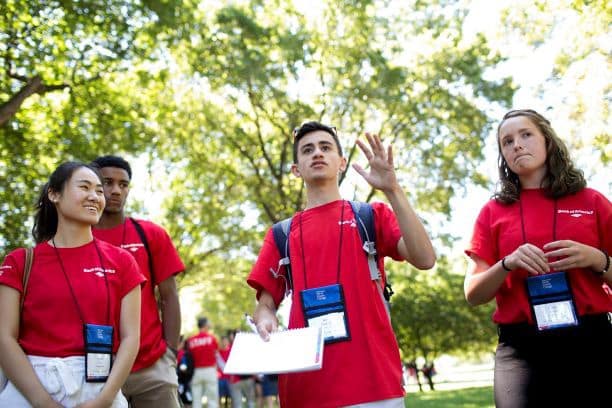I have always had a passion for education because I have seen the disparity between the argument that education is the great equalizer of society and the failure of educational systems to provide equal opportunities to all students. I believe that if we actually make education equal, we will start to see considerably more positive change.
I went to a high school that was dedicated to getting our diverse student body into a four-year college or university, and 100 percent of my class in high school did so. However, the school failed to look beyond simply admitting and enrolling us in colleges, and figured that, once there, we would be prepared with all the tools and resources we needed to succeed. However, across our charter network, students were not graduating from college at a rate any higher than the national average, which is around 40 percent (National Center for Education Statistics).
Making my way into an out-of-state college, I realized that the emphasis on getting into college as the highest metric of success holds back many first-generation college students from graduating in four years. For all the support that these students receive in high school to get to college, it is actually more harmful for them to start and not be able to finish. Once they arrive on a college campus, the dominant narrative in higher education encourages students to advocate for themselves, rather than changing the structure to better support those students who may not have experience navigating spaces of privilege like four-year colleges and universities.
I have served as the student representative to the faculty in my past two years at Wesleyan University in Connecticut, aiming to make academic resources more accessible for first generation students. Rather than trying to push students into situations where they are required to continue to advocate for themselves in difficult power dynamics, I have been able to create relationships of trust to help advocate for students where they are not sure they can. Then, based on trends I have noticed from student concerns, I have fought for specific policy changes to help eliminate barriers to advocacy. These have ranged from simple asks of faculty to refer to “office hours” as “student hours” so students feel welcome, to bigger changes like requiring syllabi to be provided in all classes.
In doing this work, I have discovered that the saying “meet students where they are” is more than just simply hearing students, but actively making sure we know what students need and how to meet their needs. It’s not enough to simply wait for students come with their issues and listen. Rather, we have to understand what barriers might stop students from being willing to speak up for themselves in the first place. Sometimes these barriers are easy to understand, like financial barriers in tuition and campus employment, but other times it can be harder to see, like the shock of being surrounded by wealthy students who can travel out of the country for every session break. Finding the happy medium between giving someone the space to advocate for themselves while also being an advocate myself is a balance I have been working hard to find, especially as someone who is not first-generation myself. The more I find it, the stronger the impact I feel I have had.
I am hoping my El Pomar internship experience will provide an opportunity to understand these skills outside of my specific and familiar Wesleyan experience. Having the opportunity to both advance the impact of El Pomar throughout the state and learn how the Foundation is advocating for others and making space, I hope to further perfect the balance I have been learning and apply it in future endeavors.



